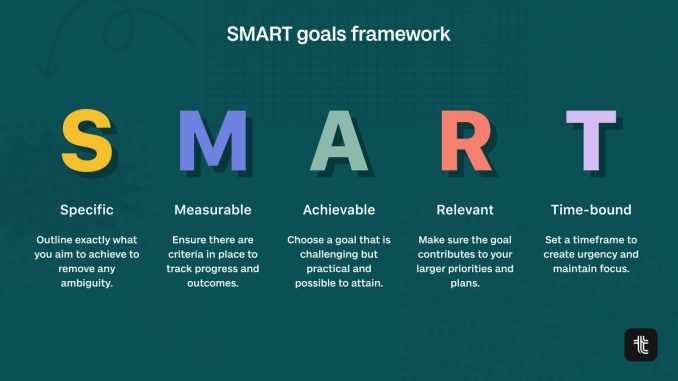
Setting SMART goals is a fundamental strategy for driving business growth in a focused and measurable way. The acronym SMART stands for Specific, Measurable, Achievable, Relevant, and Time-bound. Each element plays a crucial role in transforming vague ambitions into clear objectives that guide decision-making and motivate teams. For any business striving to expand, improve, or innovate, crafting goals using this framework can bring clarity, discipline, and a higher likelihood of success.
A business goal that is specific clearly defines what needs to be accomplished. Rather than aiming to “increase sales,” a specific goal might target “raising online product sales by 15%.” Specificity helps eliminate ambiguity, making it easier to understand the precise outcome desired. When goals are specific, they communicate exactly what success looks like, which aligns efforts across the organization and fosters accountability. Clarity in goals also aids in identifying the resources, strategies, and actions necessary to achieve them.
Measurability is the next essential component. Without measurable criteria, it’s difficult to know whether progress is being made or when a goal has been met. Measurable goals include quantifiable indicators such as revenue numbers, customer acquisition targets, or production output. These metrics enable business owners and teams to track performance, adjust strategies, and celebrate milestones. Incorporating measurement from the outset helps ensure that goals are results-oriented and grounded in tangible outcomes rather than vague aspirations.
Achievability ensures that goals are realistic and attainable given the business’s current capabilities and constraints. Setting overly ambitious or impossible targets can lead to frustration and disengagement. Evaluating achievability involves considering factors such as available resources, market conditions, and team skills. It encourages a balanced approach, where goals are challenging enough to inspire growth but remain within reach. Achievable goals foster confidence and motivate consistent effort, which is critical for sustained progress.
Relevance is a vital criterion that connects the goal to the broader business vision and strategy. A relevant goal aligns with the company’s mission, values, and long-term objectives. It ensures that time and energy are focused on initiatives that truly matter and contribute to overall growth. For example, setting a goal to improve customer satisfaction may be highly relevant for a service-oriented business aiming to build loyalty, whereas a manufacturing firm might prioritize efficiency gains. Relevance keeps goals meaningful and avoids distraction by unrelated or peripheral aims.
Time-bound goals incorporate deadlines or timeframes that create a sense of urgency and help prioritize tasks. Without a clear timeline, goals can drift indefinitely, reducing motivation and accountability. Setting deadlines encourages regular progress reviews, course corrections, and momentum. It also facilitates planning and resource allocation by defining when results are expected. Time-bound objectives transform long-term aspirations into actionable steps, helping businesses move steadily toward their growth targets.
Implementing SMART goals in business growth initiatives requires a deliberate process. First, business leaders must engage stakeholders in goal-setting discussions to ensure shared understanding and commitment. Collaboration during this stage helps identify realistic targets and uncovers potential challenges early. Next, goals should be documented clearly, often accompanied by key performance indicators (KPIs) and action plans. This documentation serves as a reference and accountability tool as the business pursues its objectives.
Regular monitoring and evaluation are equally important in the SMART goal process. Tracking progress against measurable criteria allows businesses to celebrate achievements and identify areas needing improvement. It also provides an opportunity to revisit and revise goals if conditions change. Flexibility is key—sometimes market shifts, new competitors, or internal developments require goals to be adapted. The SMART framework encourages this responsiveness by emphasizing clarity and measurement without rigidity.
The benefits of using SMART goals for business growth extend beyond improved performance metrics. This approach fosters a culture of focus, discipline, and transparency within an organization. When teams understand what is expected and how success is measured, collaboration improves and decision-making becomes more aligned. Employees feel motivated when their efforts contribute directly to clearly defined outcomes, enhancing engagement and satisfaction.
Moreover, SMART goals help mitigate risks by reducing uncertainty. Clear, measurable targets reduce guesswork and enable better forecasting. They also help prioritize initiatives, ensuring resources are allocated efficiently to the highest-impact projects. For startups and small businesses operating with limited budgets and tight timelines, this efficiency can be a decisive advantage. Even for large enterprises, SMART goals provide a structured roadmap to navigate complexity and accelerate growth.
In today’s fast-paced business environment, setting SMART goals is more relevant than ever. The ability to adapt quickly while maintaining strategic focus is critical for sustained success. SMART goals equip businesses with the tools to break down ambitious growth plans into manageable, trackable steps. This not only improves execution but also builds confidence and resilience in the face of challenges.
In conclusion, setting SMART goals is a powerful method for businesses seeking meaningful and sustainable growth. By being specific, measurable, achievable, relevant, and time-bound, goals transform vague ambitions into actionable plans. This clarity empowers business owners and teams to focus their efforts, measure progress, and adapt as needed. Ultimately, adopting the SMART framework fosters a results-driven mindset that drives continuous improvement and long-term success. For any business committed to growth, integrating SMART goals into planning and operations is an indispensable strategy.